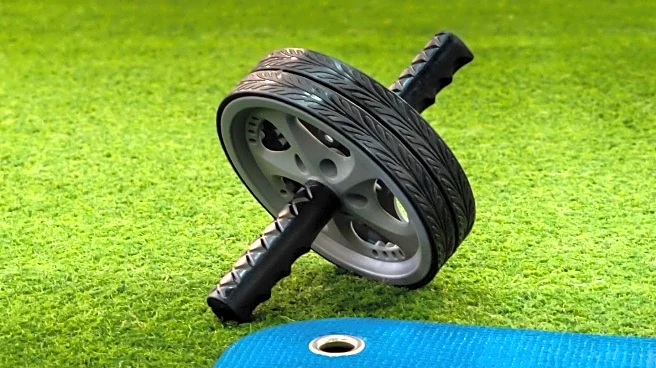What's Happening?
Mattis Oppermann, co-founder of a world-renowned luggage brand, has integrated artificial intelligence into his fitness routine to maintain accountability and structure amid his busy schedule. Oppermann, who is building the brand alongside his brother,
uses AI tools like ChatGPT to plan his workouts, ensuring they are tailored to available equipment and specific muscle groups. Despite frequent travel and the challenges of inconsistent gym facilities, Oppermann remains committed to his early-morning workouts, which he believes energize him for the day. His approach includes setting personal challenges, such as improving his 5km run time and preparing for a cross-country skiing event in Switzerland.
Why It's Important?
The use of AI in personal fitness routines highlights a growing trend where technology aids individuals in maintaining health and wellness despite demanding schedules. For entrepreneurs like Oppermann, AI provides a flexible and efficient solution to workout planning, potentially influencing how busy professionals approach fitness. This integration of technology into daily life reflects broader shifts in how industries and individuals leverage AI for personal and professional development. As AI becomes more accessible, its application in personal health and fitness could lead to increased productivity and well-being among users.
What's Next?
Oppermann's commitment to using AI for workout planning may inspire other entrepreneurs and busy professionals to adopt similar strategies, potentially leading to a wider acceptance of AI in personal fitness. As AI tools continue to evolve, they may offer even more personalized and adaptive solutions for users, enhancing the effectiveness of fitness routines. Additionally, Oppermann's upcoming cross-country skiing event in Switzerland will test the effectiveness of his AI-assisted training, possibly setting a precedent for AI's role in sports preparation.
Beyond the Headlines
The integration of AI into personal fitness routines raises questions about the future of personal trainers and traditional workout planning methods. As AI tools become more sophisticated, they may challenge existing norms in the fitness industry, prompting discussions about the balance between human expertise and technological assistance. Furthermore, the perception of luggage as a fashion accessory, as noted by Oppermann, indicates a cultural shift in consumer behavior, where functionality and style are increasingly intertwined.
















